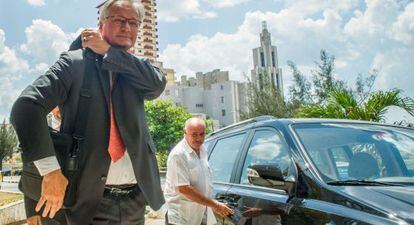Cuba, EU begin talks to restore relations
Despite 1996 veto, 14 member states have bilateral ties with the Castro government

Cuba and the European Union on Monday sat down to a first round of talks that will yield a new agreement for political dialogue and cooperation, as well as restoring normal bilateral relations.
These negotiations will also mean a definitive end to a restrictive policy that has been in place since 1996. The Common Position is a diplomatic tool making talks of any kind dependent on democratic progress and respect for human rights on the island; Havana has always viewed it as interference with its domestic affairs.
Until now, Cuba has been the only country in the region with which the EU did not have any kind of bilateral agreement, even though 14 members of the union have their own ties with Havana.
The first round of talks began at 3pm on Tuesday (local time) at the Foreign Ministry in Havana, and is scheduled to run until Wednesday afternoon.
The Cuban government is ready to discuss “any issue,” including human rights
Both sides will have to establish the new conditions for the future bilateral relations. The director for the Americas of the European External Action Service, Christian Leffler, said before the meeting that Brussels is joining the process “with great confidence.”
Leffler, who will be in charge of informing the media about the outcome of the talks, recently said that new rounds are scheduled every two months.
The meeting was made possible after Havana accepted an EU proposal to discuss a new political and cooperation agreement.
“Cuba welcomes this proposal by High Representative Catherine Ashton, which means an end to the EU’s unilateral policies on Cuba, and accepts the beginning of negotiations on the subject,” said Cuban foreign minister Bruno Rodríguez in a press conference in which he claimed that his government is ready to discuss “any issue,” including respect for human rights.
This progress is taking place against a backdrop of slow economic aperture in Cuba as a result of Raúl Castro’s policies to update the old Socialist model and attract foreign investment to the island. Havana and Brussels established diplomatic relations in September 1998 and since then political exchange has been interrupted on two occasions.
On June 19, 2008, the EU’s foreign ministers unanimously approved lifting the sanctions that were established in 2003 and initiating a process leading to the re-establishment of bilateral cooperation.
Despite the Common Position, 14 EU members have their own bilateral relations with Cuba, and according to European Commission data, the bloc is in fact one of the island’s most important trade partners, representing nearly half of all foreign investment there.










































